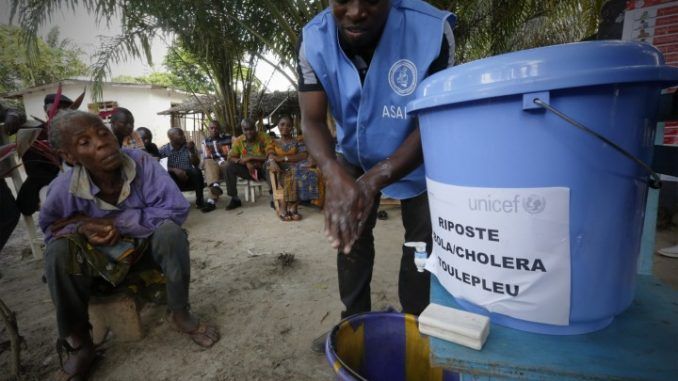
The death of a nurse in Mali who treated an Ebola patient from Guinea takes the toll in the country to two.
However, the case is unrelated to the death of the two-year-old child in which connection 25 people had been quarantined and released just a day before.
Another 50 who came in contact with the child are under observation, reports BBC.

BYPASS THE CENSORS
Sign up to get unfiltered news delivered straight to your inbox.
You can unsubscribe any time. By subscribing you agree to our Terms of Use
Ebola was first identified in Guinea in March, before it spread to neighbouring Liberia and Sierra Leone.
The WHO says there are now more than 13,240 confirmed, suspected and probable cases, in these countries.
The situation in Liberia and Guinea has shown signs of improvement but Sierra Leone continues to struggle in efforts to control, given its poor healthcare facilities and dire need of personnel. Around 300 new cases were recorded in the last three days.
In the country’s main hospital, Ebola has killed two of four clinicians and one remains sick while one has fled in fear.
The Kenema Government Hospital that serves three districts with over one million people in the area has seen a big drop in maternal patient count, writes Scientific American.
Prior to the Ebola outbreak, doctors typically delivered around 150 babies and performed 17 C-sections each month. But now, lack of medical professionals and fear of being treated at an Ebola centre have led to women not reporting in for delivery.
Healthcare workers have also distanced themselves from pregnant women requiring C-section as the risks of transmission are very high with exposure to bodily fluids also very high.
A clinic run by Doctors Without Borders in a different district stopped accepting pregnant patients in July because it could no longer accept the risk to their staff.
The World Health Organization says it is expecting the West African nations to report worse maternal mortality rates than before. “Although we do not have data, it is understood that lack of routine obstetric care will have a significant negative impact on maternal and newborn outcomes,” says Lisa Jane Thomas, a WHO medical officer.


